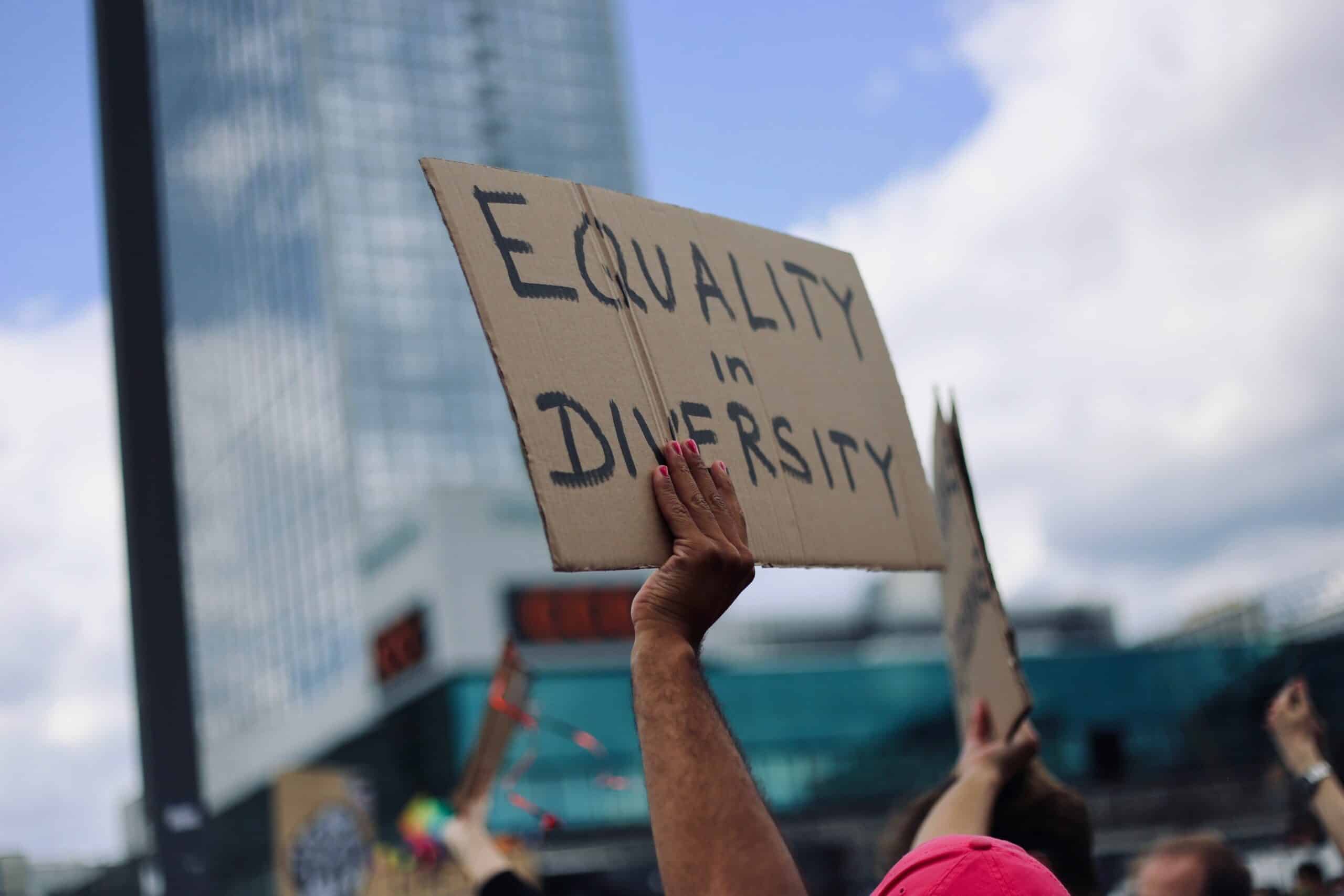Human Resources
HR Trends 2021: Humility
6 January 2021

In 2020, managers and business leaders around the world learned that facing new challenges effectively, means admitting they don’t have all the answers. In fact, we learned that we all have to listen more.
What are our employees thinking and feeling? What are they struggling with most during this tough time? And the list goes on. There has never been a time when empathy and human-centric has been more important. While staying adaptable amid all this change, we must also give employees the space to innovate, communicate, learn, grow, and of course, thrive.
With our MC Joe Sweeney, we brought together 4 HR experts from around Europe, to discuss the big trends for HR and the workplace in 2021. Below, watch them discuss the theme of Humility and its role in HR and the workplace in 2021.
Alexandre Pachulski, author, co-founder and CPO at Talentsoft
Neelie Verlinden, Editor-in-chief of AIHR Digital and Digital Content Manager at Talentsoft
Robindro Ullah, Managing Director at Trendence Institut, HR blogger and Influencer
Debra Corey, Chief ‘Pay it forward’ Officer at Debco HR Limited, Author and Speaker
Video Transcription:
JOE: Let’s look at our next trend - humility. And we’re going to start with a song.
[Extract from Willie Nelson song: “It’s hard to be humble”]
JOE: So Alexandre, we just heard an extract from the Willie Nelson song it’s hard to be humble – it is hard to be humble sometimes in the workplace. Is that right?
ALEX: Well Willie Nelson is so right. Honestly, without exaggerating it’s almost impossible to be humble at work because we’ve been told that we should impress people. We should hide our fears, our doubts and some people I believe spend 60 to 70 percent of their energy on a day-to-day basis to, kind of, hide all that stuff and so they’ve only got 30 percent to do their job. So humility, it’s a kind of place where you can find back all this energy. And I believe it’s possible now to be humble at work because if – except uh Willie Nelson – if we look at politicians for instance, we could say that politicians are not the ones that were the first to admit their mistakes and to say “I don’t know”. We have never listened to a politician say “I don’t know”. And now it’s happening. It’s happening because we are facing a pandemic that…yes pandemics are not a new thing, it was even worse before…but pandemics in this context, in globalization, in the world we are living in in 2021 – this is new and it means that the solution that could have been applied yesterday cannot be applied exactly the same way. So you’ve got to invent new solutions to what is not a new problem but which is a problem in a new context. And so it means that if you do not admit that you don’t know, if you do not feel free to say “I don’t know”, you won’t have your 100 percent of energy. And for sure, to face these unfaced problems, extremely complex problems - we will need our 100 percent of our energy. So I love this stuff. And to come back to what Robindro has said just before, talking about AI and about transparency. Transparency is absolutely mandatory to make AI real in the workplace, because otherwise we won’t trust AI and we won’t be able to make decisions based on AI results, that eventually we wouldn’t understand . Transparency is key in technology, transparency is key for human beings, because I believe that people from a more societal standpoint, they are fed up to listen to people trying to pretend. So it’s all about now ‘tell the truth’. So this is it, this is where we are let’s find something.
JOE: Great. Debra I want to ask you a question to follow up on that – in your book ‘Build It’ you include a diagram that shares 10 things that leaders, that great leaders do. How does that relate to this concept of humility?
DEBRA: Yeah it absolutely relates and it’s interesting because we wrote the book, gosh over two years ago and what we did is we went to our employees who were mostly millennials, and we said ‘What does a great leader look like?’ And it’s all the things that you’re talking about. So the top 10 things are things about being open and honest and communicating. Own your mistakes. Admit your mistakes. Be human. All those types of things that run into this whole concept of humility. And as you said it’s even more important now. I literally just got off another webinar I did for a bunch of leaders of a global company and the picture I had on the first slide was of a lighthouse. And I explained that your role as a leader is to be that lighthouse, to be that beacon of light to help your employees get through this chaos challenge. The only way that you can do it is by being human, you earn the respect, you earn their trust. I 100 percent agree with you so I think it’s important for you as an organization to understand what are the 10 great things at your company so you know, just because my employees said this who knows what your employees, they might be slightly different.
JOE: Neelie, I want to bring you in on this. You’re based in the Netherlands. Do you think organizations in the Netherlands are ready to embrace humility at work?
NEELIE: I think it is always tricky to do to say something about an entire country, even though we Dutch we are famous for being honest – perhaps sometimes being too honest. I think two things are probably what’s the culture inside the organization like? I think that plays a very important role here? Is it acceptable for people, as Debra just said, to make mistakes? Is it acceptable for people to say “I don’t know”? So I think that’s one thing that’s very important and I think something else that’s important here is to take into account the cultural differences because between the different cultures it’s not necessarily as common to say “I don’t know” and to be open about that. So iIthink those two very important things here. To say something about the Netherlands anyway, I do think that in a lot of companies here in the Netherlands people are not afraid to speak their minds and to indeed say “I simply don’t know” or “I tried something and it went wrong”.
ALEX: It comes, and you are totally right Neelie, with the ability to try things and that way we come back to HR mechanisms. If you just stick to what we’ve said and change nothing in the company’s governance depending on cultural matters, mindset and so on… it could eventually not work. To make it work you’ve got to change, for instance, objectives management and the way you set objectives and, if during the annual appraisal process review, you set objectives and you push incentives for people that will take risk, that will try things… because it’s one thing to say “I don’t know” but in a way you’ve got to try something because we cannot stay just with this “I don’t know”. And so if you encourage people to try things even if they fail but retry as far as the final solution, you could really change the game because it won’t be only words. You can force change because what will be recognized is risk and not security. It’s not pretending so it’s got to come with a change within governance.
DEBRA: Because I agree completely I think it has to be a change of a mindset and it can be even something as simple as not calling it a mistake and calling it a ‘Learning Moment’. And I’ve heard that term before and I absolutely love it. And I agree with what you said. I’ve started at my organizations recognizing people for learning moments – so sending them a recognition card saying “well done for trying this. It might not have worked for these three reasons but I’m looking forward to you trying it again and figuring out another way to do it.” So I agree - mindset and action, it will encourage those changes.
JOE: Brilliant, so humility was our second trend for HR in the workplace in 2021.


